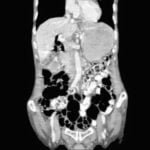
Top questions on Asthma answered
Dr.Vipul Agarwal
MBBS, MD (Internal Medicine), FAGE
Assistant Professor, Department of Internal Medicine
Mahatma Gandhi medical college, Jaipur
E-mail: vipul.msrmc@gmail.com
What is asthma?
Asthma is a condition that can make it hard to breathe. Asthma symptoms can be mild or severe. And they can come and go. An asthma “attack” is when symptoms come on suddenly. This happens when the airways in the lungs become narrow and inflamed. Asthma can run in families.
What are the symptoms of asthma?
Asthma symptoms can include:
- Wheezing or noisy breathing
- Coughing
- A tight feeling in the chest
- Shortness of breath
Symptoms can happen each day, each week, or less often. Symptoms can range from mild to severe. Although it is rare, an asthma attack can sometimes even lead to death.
Is there a test for asthma?
Yes. Your doctor will ask you about your symptoms and have you do a breathing test to check how your lungs are working.
If your doctor thinks allergies might be making your asthma worse, they might suggest allergy testing. This can include skin tests or blood tests.
How is asthma treated?
Asthma is treated with different types of medicines. The medicines can be inhalers, liquids, or pills. Your doctor will prescribe medicine based on how often you have symptoms and how serious your symptoms are. There are 2 main types of asthma medicines:
- Quick-relief medicines stop symptoms quickly – in 5 to 15 minutes. Almost everyone with asthma has a quick-relief inhaler that they carry with them. People use these medicines whenever they have asthma symptoms. Most people need these medicines 1 or 2 times a week, or less often. But when asthma symptoms get worse, more doses might be needed.
- Long-term controller medicines control asthma and help prevent future attacks. People who get asthma symptoms more than 2 times a week should use a controller medicine every day.
Some medicines can work as both a controller medicine and a quick-relief medicine. These are taken once or twice a day as controller medicines. They can also be used for quick relief.
It is very important to take all the medicines the doctor prescribes, exactly how you are supposed to take them. You might have to take medicines a few times a day. Your doctor, nurse, or pharmacist will show you the right way to use your inhaler(s).
If your symptoms get much worse all of a sudden, use your quick-relief medicine and contact your doctor or nurse. You might need to go to the hospital for treatment.
Can asthma symptoms be prevented?
There are things you can do to help prevent asthma attacks. Your doctor can talk to you about what is most important for you.
In general, you can:
- Avoid “triggers” – These are things that make your symptoms worse. Common triggers include smoke, air pollution, dust, mould, pollen, strong chemicals or smells, and very cold or dry air. For some people, being around certain animals can trigger symptoms. Exercise and stress can also be triggers.
Some adults with asthma have worse symptoms if they take aspirin or medicines called NSAIDs. NSAIDs include ibuprofen and naproxen. Ask your doctor if you need to avoid these medicines.
If you can’t avoid certain triggers, talk with your doctor about what you can do. For example, you might need to take an extra dose of your quick-relief inhaler medicine before you exercise or are around things you are allergic to.
- Lower your risk of getting sick – Some infections can make asthma symptoms worse. These include the common cold, the flu, and coronavirus disease 2019 (COVID-19).
It’s important to get the COVID-19 vaccine, plus all recommended boosters. This will lower the risk of severe illness if you do get COVID-19. You should also get a flu shot every year. Plus, some people need to get a vaccine to help prevent pneumonia.
If you think you might have an infection, tell your doctor or nurse. They can help you figure out if you need treatment.
- Make sure you know how and when to take your medicines – If you take controller medicines, it’s important to follow all instructions to help prevent symptoms. You should also make sure you know how and when to use your quick-relief medicine.
View in browser :The Health Guide
Join the mailing List of The Health Guide
Join the mailing list!
Get the latest articles delivered right to your inbox!

